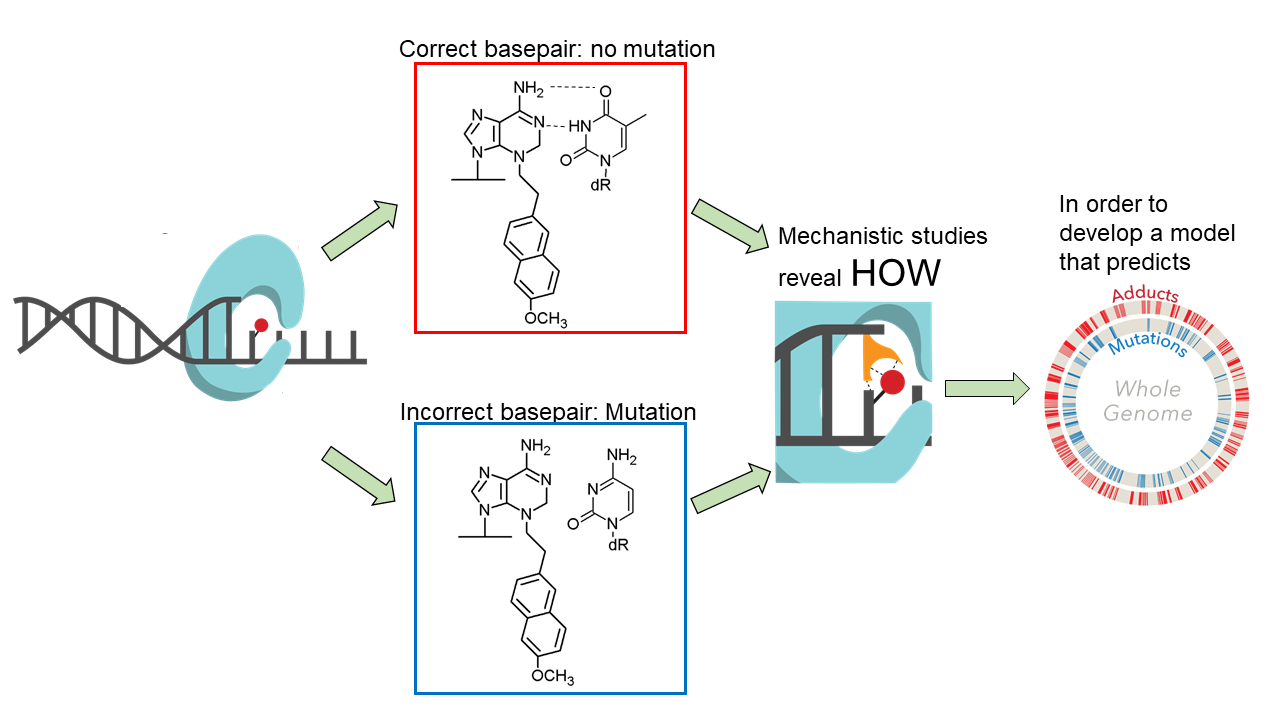Translesion synthesis of minor groove DNA adducts
Translesion DNA synthesis (TLS) is catalyzed by specialized DNA polymerases that can accommodate damaged bases in their active sites and replicate past the damage. Several anticancer agents form DNA adducts in the minor groove, which interfere with DNA replication and transcription to induce apoptosis. TLS polymerases have the capacity to bypass the DNA adducts and can contribute to damage tolerance and drug resistance. High expression of some TLS polymerases confer resistance to anticancer drugs by overcoming the replication blocking effect of the adducts. TLS can be a source of mutations as the incorrect nucleotide can be inserted by the polymerases opposite the damage. TLS also includes post-lesion synthesis, extension from the lesion before the replicative polymerase can continue its DNA synthesis. The mutation potential of post-lesion synthesis is not as well characterized.
Representative Publications
Malvezzi, S., Angelov, T., and Sturla, S.J. (2016). Minor groove 3-Deaza-Adenosine Analogues: Synthesis and Bypass in Translesion DNA Synthesis. Chem Eur. J. 23.5 (2017): 1101-1109.
external page https://doi.org/10.1002/chem.201604289
Malvezzi, S., Farnung, L., Aloisi, C. M. N., Angelov, T., Cramer, P., and Sturla, S. J. (2017). Mechanism of RNA polymerase II stalling by DNA alkylation. PNAS. 114(46), 12172-12177.
external page https://doi.org/10.1073/pnas.1706592114


